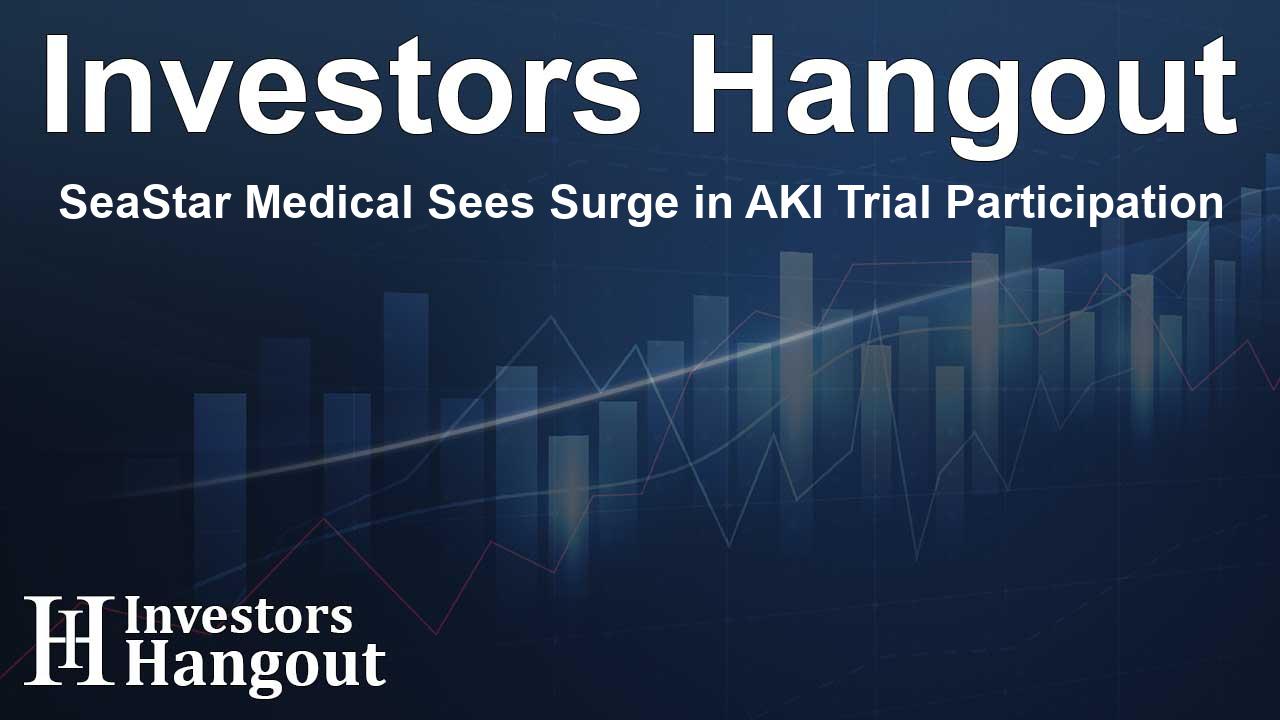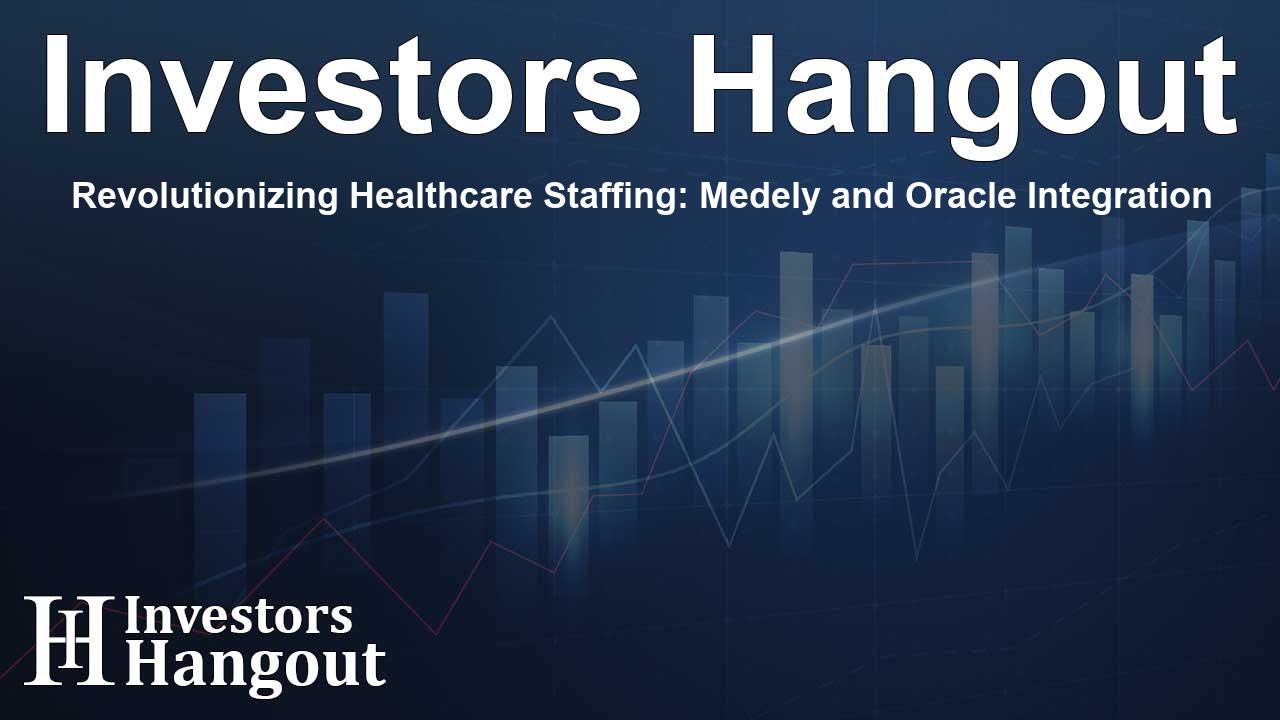SeaStar Medical Sees Surge in AKI Trial Participation

Record Enrollment in SeaStar Medical's NEUTRALIZE-AKI Trial
SeaStar Medical Holding Corporation (NASDAQ: ICU), a pioneer in medical devices, has achieved a significant milestone in its NEUTRALIZE-AKI trial aimed at treating acute kidney injury (AKI). The company recently reported adding 10 critically ill patients with AKI to its clinical study, raising the total enrollment to 56 participants. This monumental achievement marks a record month in terms of patient recruitment.
As stated by Kevin Chung, MD, the Chief Medical Officer of SeaStar Medical, there has been a remarkable acceleration in the pace of enrollment. "Within just over six weeks, we enrolled 14 new subjects," he noted. With three additional clinical sites commencing their participation in October and more set to open by December, the company is optimistic this momentum will continue to build.
Expansion of Clinical Trials
Eric Schlorff, the CEO of SeaStar Medical, expressed enthusiasm regarding the developments. "We have successfully activated 12 clinical sites, and recently initiated participation from a prestigious teaching hospital alongside two major military medical facilities. This aligns perfectly with our strategy to select diverse clinical sites. AKI patients can be treated at any kind of facility, and our NEUTRALIZE-AKI trial encompasses a wide range of healthcare settings. This range demonstrates the potential for our Selective Cytopheretic Device (SCD) to be integrated seamlessly into standard hemofiltration systems, facilitating future commercialization efforts. Our ultimate aim is to improve access for approximately 210,000 AKI patients in the U.S. each year, regardless of their treatment location.
Understanding the NEUTRALIZE-AKI Trial
The NEUTRALIZE-AKI (NEUTR) trial is designed to enroll up to 200 adults suffering from AKI. Its primary objective is to compare the combined effects of 90-day mortality and dialysis dependency between patients treated with the SCD and those receiving conventional care with continuous renal replacement therapy (CRRT). For an interim analysis, an initial enrollment of 100 subjects will be examined against this key endpoint. Furthermore, the trial includes secondary endpoints focusing on mortality rates at 28 days, ICU-free days, significant kidney-related events, and long-term dialysis dependency up to one year. The study also plans subgroup analyses to assess the effectiveness of SCD therapy in AKI patients experiencing conditions such as sepsis and acute respiratory distress syndrome.
Acute Kidney Injury and Its Challenges
AKI is a condition that manifests as a sudden and temporary loss of kidney function. Various factors can lead to AKI, including serious conditions such as COVID-19, sepsis, significant trauma, or major surgeries. This condition often triggers hyperinflammation, an overreaction of the immune response that can adversely affect not only the kidneys but also other vital organs like the heart and liver, possibly leading to multi-organ failure.
The impact of hyperinflammation can extend beyond the immediate health challenges faced, potentially leading to chronic kidney disease or end-stage renal disease that requires ongoing dialysis. In addition, the complications brought on by AKI and hyperinflammation can lead to higher healthcare costs, increased ICU stays, and greater needs for mechanical ventilation.
Innovations Behind the Selective Cytopheretic Device
The Selective Cytopheretic Device (SCD) stands out as a patented, innovative tool designed to address these challenges. It employs unique immunomodulating technologies to specifically target and mitigate the effects of proinflammatory cells during CRRT, effectively reducing the hyperinflammatory environment that accompanies AKI. Unlike traditional methods aimed at pathogen removal, the SCD integrates into hemofiltration systems to shift harmful monocytes toward a healing state and diminish the inflammatory nature of activated neutrophils.
This advanced immunomodulatory approach seeks to facilitate long-term recovery of organ function, thereby potentially eliminating the necessity for further renal replacement therapy (RRT).
Regulatory Progress and Future Vision
SeaStar Medical's SCD has previously received the U.S. FDA Breakthrough Device Designation for treating AKI, which indicates it may significantly surpass existing treatments in terms of clinical effectiveness. In a notable progression, the Centers for Medicare & Medicaid Services granted Category B coverage for specific expenses related to the treatment of patients enrolled in the NEUTRALIZE-AKI trial.
The SCD has also been acknowledged with FDA Breakthrough Therapy Designations for three additional medical conditions: Cardiorenal Syndrome (specifically in patients with Left Ventricular Assist Devices), Adult AKI, and Hepatorenal Syndrome.
In addition, the company has recently commenced commercialization of its pediatric device, QUELIMMUNE™, designed for children suffering from AKI and sepsis. This device was granted approval under a Humanitarian Device Exemption in early 2024 in recognition of its safety and clinical benefits for critically ill children.
About SeaStar Medical
SeaStar Medical is at the forefront of medical technology, focusing on redefining how extracorporeal therapies can address the challenges associated with excessive inflammation in vital organs. Its innovative solutions are aimed at delivering life-saving interventions for critically ill patients. By concentrating on developing and commercializing cell-directed extracorporeal therapies, SeaStar Medical is committed to mitigating systemic inflammation that can drive severe tissue damage and disrupt immune responses.
For more information, please contact: Alliance Advisors IR, Jody Cain at (310) 691-7100 or via email at Jcain@allianceadvisors.com.
Frequently Asked Questions
What is the NEUTRALIZE-AKI trial?
The NEUTRALIZE-AKI trial is a pivotal study assessing the safety and effectiveness of the Selective Cytopheretic Device in adults with acute kidney injury.
How many patients are currently enrolled in the trial?
Currently, there are 56 patients enrolled in the trial, marking a new record for monthly enrollment.
What does the SCD aim to address?
The SCD aims to reduce hyperinflammation caused by AKI, promoting healing and improving overall patient outcomes.
Is the SCD approved for use?
Yes, the SCD has received the FDA Breakthrough Device Designation and is undergoing clinical trials to prove its effectiveness.
What are the future plans for SeaStar Medical?
SeaStar Medical plans to expand patient access and continue advancing its innovative technologies to improve treatment options for patients with AKI.
About Investors Hangout
Investors Hangout is a leading online stock forum for financial discussion and learning, offering a wide range of free tools and resources. It draws in traders of all levels, who exchange market knowledge, investigate trading tactics, and keep an eye on industry developments in real time. Featuring financial articles, stock message boards, quotes, charts, company profiles, and live news updates. Through cooperative learning and a wealth of informational resources, it helps users from novices creating their first portfolios to experts honing their techniques. Join Investors Hangout today: https://investorshangout.com/
Disclaimer: The content of this article is solely for general informational purposes only; it does not represent legal, financial, or investment advice. Investors Hangout does not offer financial advice; the author is not a licensed financial advisor. Consult a qualified advisor before making any financial or investment decisions based on this article. The author's interpretation of publicly available data shapes the opinions presented here; as a result, they should not be taken as advice to purchase, sell, or hold any securities mentioned or any other investments. The author does not guarantee the accuracy, completeness, or timeliness of any material, providing it "as is." Information and market conditions may change; past performance is not indicative of future outcomes. If any of the material offered here is inaccurate, please contact us for corrections.









